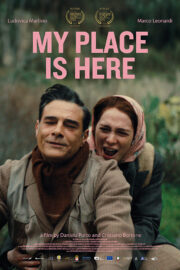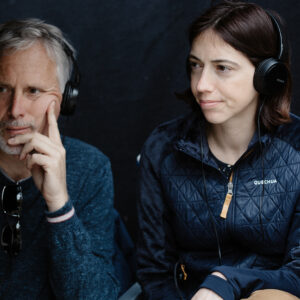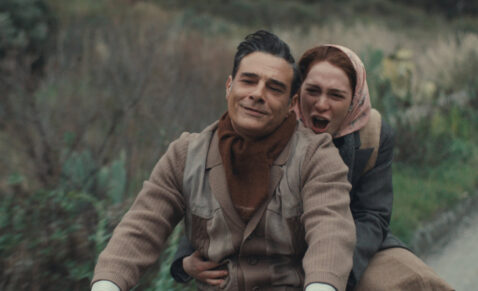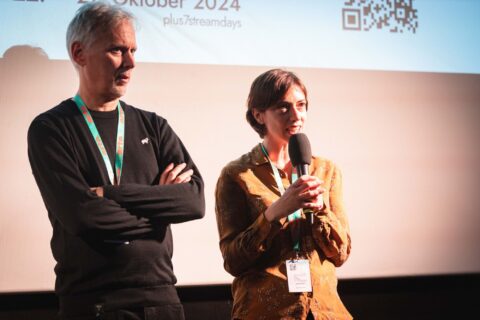My Place Is Here
In the impoverished confines of her parents’ home, 17-year-old Marta awaits the return of her fiancé from war. As a single mother, she faces the scorn of her community, and once the war is over and he doesn’t return, she finds herself promised to an older farmer. During the village’s preparatory course for wives, she forges an unlikely friendship with Lorenzo, the village’s openly gay “wedding planner.” In the conservative backdrop of rural Southern Italy, Lorenzo introduces her to a hidden community of gays, sparking Marta’s courageous journey to challenge societal prejudices. In the first year of women’s suffrage in Italy, Marta navigates her evolving role as a woman, breaking barriers and finding her place in a changing world.
Cast
- Marta
- Ludovica Martino
- Lorenzo
- Marco Leonardi

My Place Is Here
Daniela Porto, Cristiano Bortone
- Fiction
- Production Country / Year
- Italy, Germany 2024
- Language
- it. OF m. dt. UT
- Format
- DCP, Color, 110min
Other, Discrete 5.1
- Original Title
- Il mio posto è qui
Director & Crew

Daniela Porto
Born in 1979 in Rome/Italy. Studied Art, Music, and Acting at the University of Rome Tre. Worked as a photographer at the agency Contrasto, then as a production supervisor for Orisa Produzioni. Active as a production supervisor and director.
Filmography
| 2024 | My Place is Here |

Cristiano Bortone
Born in 1968 in Rome/Italy. Studied at the University of California and New York University of Film and Television. Founded Orisa Produzioni in Italy and Yiyi Pictures in China. Active as a producer and director.
Filmography
| 1994 | Oasis | Spielfilm | |
| 2000 | I am positive | Spielfilm | |
| 2002 | Forbidden grass | Dokumentarfilm | |
| 2008 | Red like the sky | Spielfilm | |
| 2011 | The scent of the land | Dokumentarfilm | |
| 2012 | 10 rules to make someone fall in love | Spielfilm | |
| 2016 | Coffee | Spielfilm | |
| 2024 | Il mio posto è qui | Spielfilm Co-Regie |
2024 |
“The story takes place in the aftermath of World War II. It is a historical moment in which Europe experiences, in a relatively short period of time, enormous social, cultural, and political changes. Many of the changes that occurred in the immediate post-war period caught most Italians off-guard. The country became a republic following a referendum won only by a few votes, and society was suddenly torn between the losers and the winners, right and left, the Christian Democrats (CD) and the Communist Party (PCI): two sides that, each in their own way, upheld a highly moralistic view on society. In this context, the majority of the Italian population—especially in the South—remained deeply attached to their patriarchal tradition, with no instruments to imagine an alternative.”
Daniela Porto and Cristiano Bortone
- Music Composer
- Santi Pulvirenti
- Producer
- Cristiano Bortone
- Sven Burgemeister
- Writer
- Daniela Porto
- Cristiano Bortone
- Set Designer
- Alessandra Mura
- Sound
- Riccardo Righini
- Editor
- Claudio di Mauro
- Costume Designer
- Cristiana Ricceri
- Director of Photography
- Emilio M. Costa










